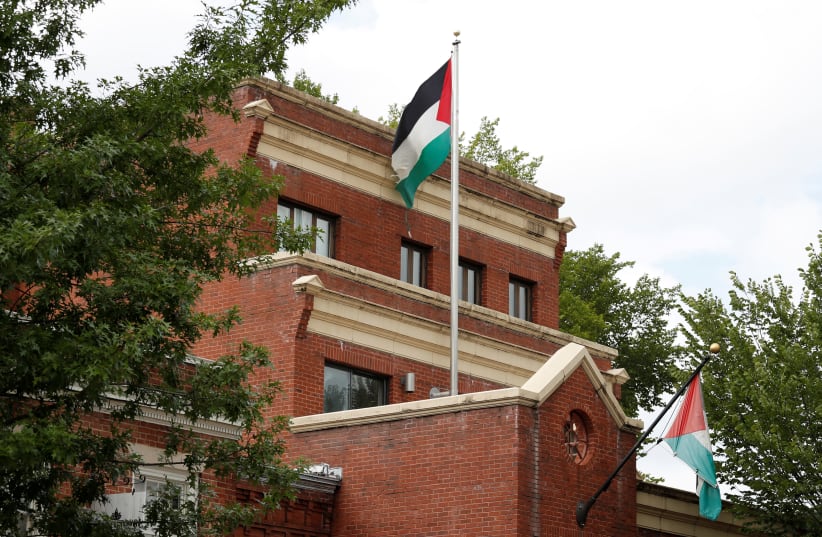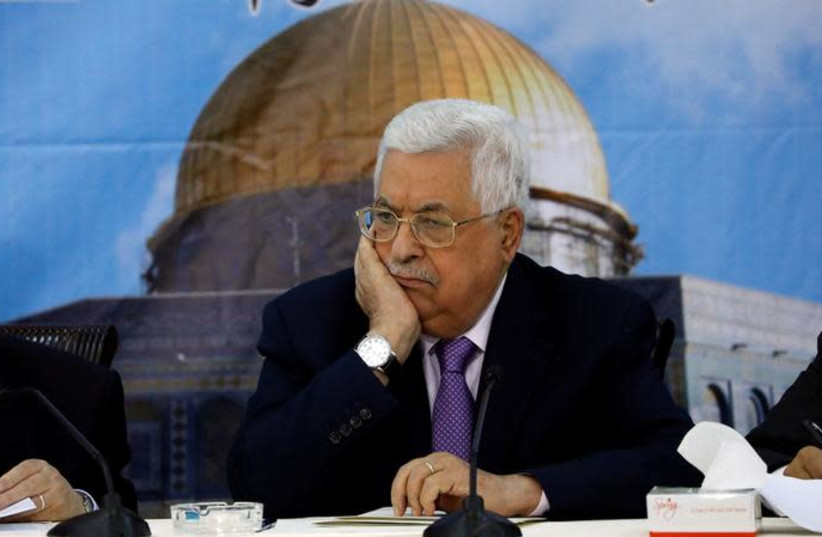The Palestinian Central Council (PCC), also known as the PLO Central Council, will convene in Ramallah on February 6 to discuss Israel’s “colonial and settlement war” against the Palestinians, Salim al-Zanoun, chairman of the Palestinian National Council (PNC), the Palestinians’ parliament-in-exile, announced on Thursday.
The PCC functions as an intermediary body between the PNC and the PLO Executive Committee, the highest executive body of the organization.
Zanoun’s announcement came amid rising tensions between the ruling Fatah faction headed by Palestinian Authority President Mahmoud Abbas and other Palestinian groups opposed to any peace process with Israel.
Palestinian sources said recently that the PCC meeting, which was scheduled to take place on January 20, was delayed due to the tension between Fatah and other PLO factions, including the Popular Front for the Liberation of Palestine.
According to the sources, the decision to postpone the meeting was also taken due to differences among senior Fatah officials over filling vacant positions in the PLO Executive Committee.
The sources claimed that Abbas’s decision to delay the PCC meeting was also aimed at “avoiding a clash with Israel and the US administration.”
In its last meeting in 2018, the PCC called for suspending the PLO’s recognition of Israel until it recognizes a Palestinian state. The PCC also called for suspending security coordination between the PA security forces and Israel. A similar call was made by the PCC in 2015.
Abbas’s critics have accused him of “monopolizing” the Fatah and PLO institutions and refusing to share powers with other Palestinian factions.
Moreover, Abbas has faced widespread criticism for calling off parliamentary and presidential elections that were supposed to take place last year.
Abbas, who is in the 17th year of his four-year term in office, is hoping to use the upcoming PCC gathering to tighten his grip on the Palestinian leadership, and “reaffirm his status as the legitimate president of the Palestinian Authority,” said a Ramallah-based political analyst.
In a move that has drawn criticism from several Palestinian factions and figures, the Fatah Central Committee earlier this week “unanimously renewed its confidence” in Abbas as head of Fatah, the PLO and “president of the State of Palestine.”
The committee also decided to nominate two Abbas loyalists – Hussein al-Sheikh and Rouhi Fattouh – as candidates for membership in the PLO Executive Committee and chairman of the PNC, respectively.
Sheikh is expected to replace Saeb Erekat, who died in 2020, as secretary-general of the PLO Executive Committee. Fattouh, for his part, is expected to replace the 89-year-old Zanoun, who will retire shortly.
The renewed vote of confidence in Abbas and the promotion of the two officials are seen in the context of the PA president’s effort to consolidate his control over the key decision-making bodies of the Palestinians.
The committee’s decisions are also regarded by political analysts to be a blow to senior Fatah officials Jibril Rajoub and Mahmoud al-Aloul, who are touted as potential successors to Abbas.
The PCC meeting is expected to endorse the Fatah committee’s decision, further boosting Abbas’s control over the PLO and Fatah and paving the way for Sheikh to assume the position of No. 2 in the Palestinian leadership.
On Wednesday, two PLO factions, the Popular Front for the Liberation of Palestine – General Command and As-Sa’iqa (also known as Vanguard for the Popular Liberation War), announced that they will boycott the PCC meeting.
The two groups said in a statement that “reforming the PLO and convening the Palestinian Central Council should be on the basis of the recent meeting of the secretaries-general of all Palestinian factions.”
They were referring to the virtual meeting held in Ramallah and Beirut in September 2020, when the leaders of the Palestinian factions, including Abbas, “agreed on the necessity to be led by one democratic political system and to have one authority and one law.”
Such a system, they said, has “to maintain political pluralism and enforce a peaceful transition of power through free and transparent elections.” The faction leaders also agreed to form a committee to end the dispute between Fatah and Hamas and achieve “reconciliation and partnership under the umbrella of the PLO, the sole and legitimate representative of the Palestinian people.”
In addition to the two groups, PFLP officials have also indicated their intention to boycott the PCC meeting.
In his statement on Thursday, Zanoun said that the PCC meeting will discuss the “stalemate in the Middle East process, and the need for the international community to assume its responsibilities by implementing its decisions on the Palestinian issue, especially with regard to stopping Israeli settlements, providing international protection for our people, and holding an international peace conference under the umbrella of the United Nations to implement its decisions.”
He added that the PCC will also “study ways to strengthen Palestinian national unity within the framework of the PLO, the sole legitimate representative of the Palestinian people, and approve the necessary mechanisms for developing and activating its departments and institutions in a way that ensures the mobilization of all national energies and capabilities, to confront the occupation’s attempts to perpetuate its settlement enterprise on our Palestinian land, especially our capital, Jerusalem.”

